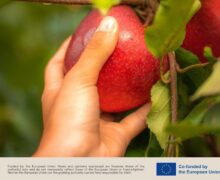European Tourism: 33 destinations report growth in tourism

Europe saw a 7% growth in international tourist arrivals in the second quarter of 2018 over the same period last year and accounts for 50% of the share of tourist arrivals worldwide.
According to the European Travel Commission’s latest report, “European Tourism – Trends & Prospects 2018”, growth in visitor arrivals has been recorded by all 33 reporting destinations, with 1 in 3 enjoying increases in excess of 10%.
Despite signals of a slowing global economy and increased fuel prices expected to turn into higher air fares, appetite for travel to Europe remains and is encouraged by increased air routes between the region and key long-haul source markets and destination’s efforts to sustain year-round tourism growth.
Travellers are returning to Turkey (+33%) owing to improved perceptions. The rebound in visitor numbers is boosted by a range of source markets including China alongside the Turkey Year of Tourism in China. Growth in Balkan destinations such as Croatia (+27%) and Montenegro (+22%), was supported by increased air connectivity whereas Mediterranean islands, like Malta (+18%) and Cyprus (+15%), appear to have benefited from spurring cruise line traffic. Bulgaria (+12%) saw stand out growth due to its appeal and affordability during the shoulder season while Iceland (+6%) experienced a significant slowdown from previous years.
Established hotspots such as Spain (+2%) and Portugal (+4%), registered moderate increases and saw falls from some of their largest European source markets (e.g. UK and Germany). In the US, increased wages and private consumption are expected to underpin European travel demand. Growth from the US remains strong for many European destinations despite an environment of increased protectionism and a weaker dollar rendering travel to Europe less affordable. Cruise destinations, Cyprus, Montenegro, and Croatia saw increases in excess of 30% from this market based on latest 2018 data.
“In an ever-changing environment, ETC encourages European destinations to work collaboratively with tourism stakeholders and policy makers to develop strategic actions through innovative practices that allow for a more sustainable, economic and inclusive growth” said Eduardo Santander, Executive Director European Travel Commission (ETC).
source: eTN




